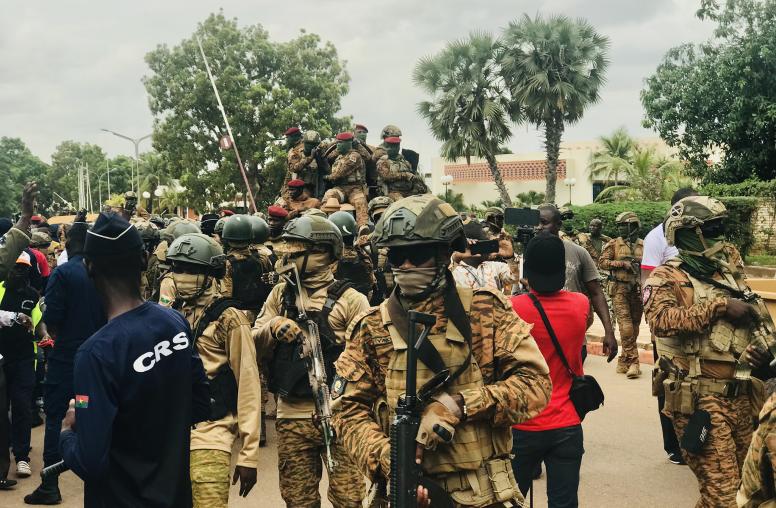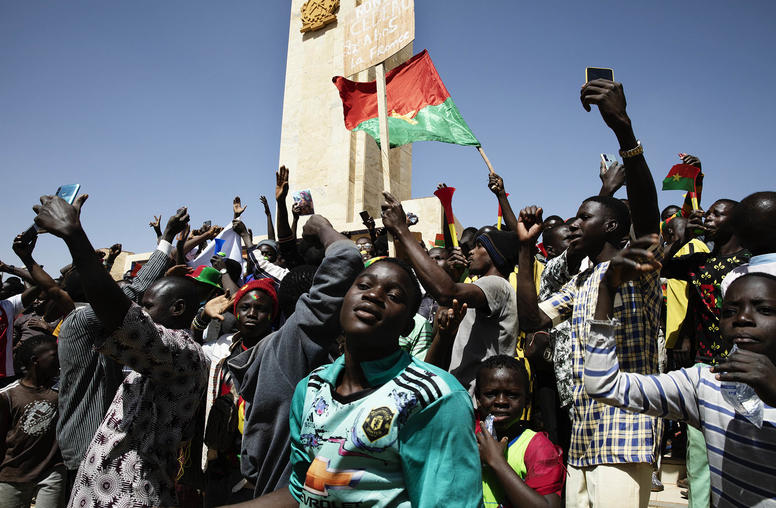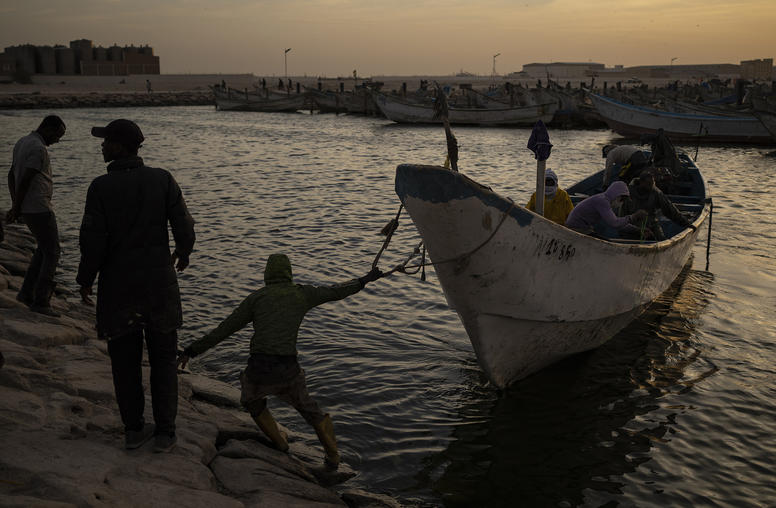U.N. Peacekeeping in the Sahel: Overcoming New Challenges
New U.N. operations in the Sahel present unprecedented challenges for U.N. peacekeeping. They involve the United Nations directly in the struggle against transnational Islamist terrorism, weapons proliferation, and illicit trafficking by international organized crime. The United Nations must operate in countries with harsh terrain, vast expanses, poor communications, and porous borders. In response, the Security Council adopted more robust mandates based on the peace enforcement provisions of the U.N. Charter. In Mali, the United Nations joined the African Union, the European Union, and France, whose forces conduct combat operations, while the United Nations used helicopter gunships and armed police units to protect civilians. In the Central African Republic, U.N. Police are authorized to control violence and arrest offenders. For the United States, there is new interest in U.N. peacekeeping and its importance to U.S. national security interests.
Summary
- In the Middle East and North Africa, the international community is confronted by a region in turmoil from conflicts driven by religious extremism, weapons proliferation, and organized crime. The implications of this development for U.N. efforts to reestablish sustainable security through peacekeeping have been profound. The response to this challenge has been a new generation of U.N. operations authorized under the peace enforcement provisions of the U.N. Charter.
- In Mali, the Central African Republic, and other African countries, the United Nations has worked with the African Union, European Union, and France to combat terrorists and insurgent forces, to protect civilians, and extend the authority of national governments. U.N. military forces have more aggressive mandates and are equipped with drones and helicopter gunships. U.N. Police have new authorities to restore public order and establish the rule of law.
- The U.N. involvement in the struggle against transnational terrorism and crime has enhanced the importance of U.N. peace operations, but it has revealed shortcomings in U.N. capabilities and created controversy among member states over the use of force in U.N. missions and U.N. involvement in the affairs of member states.
- U.N. engagement in this critical region has also caused the U.S. government to reevaluate the importance of U.N. peacekeeping to U.S. foreign policy and national security interests. The United States has launched new programs to assist regional governments and to train African peacekeepers for current and future operations.
About the Report
The report is based on a 2014 course presented at the U.S. Institute of Peace (USIP) Academy for International Conflict Management and Peacebuilding on U.N. peace operations in the Sahel. The course was cofacilitated by the author and representatives from the U.N. Department of Peacekeeping Operations. The report also draws from interviews conducted by the author at U.N. headquarters and with senior U.N. officials in Washington and Africa. It looks at the growing relevance to U.S. foreign policy and national security interests of U.N. peacekeeping in areas threatened by transnational terrorism and organized crime and calls for increased U.S. engagement and support. USIP research assistants Elizabeth Teoman, Eva Maria Smith, Emily Mella, and Kelly McKone contributed to the report.
About the Author
Robert M. Perito is the executive director of the Perito Group, which advises governments on security sector reform, and an adviser to the U.N. Police Division on doctrine development. Formerly, he was the director of the Center of Innovation for Security Sector Governance at USIP and led the U.S. Justice Department’s international police assistance program. Perito was a U.S. foreign service officer with the State Department and served in the White House as deputy executive secretary of the National Security Staff. He was a visiting lecturer at Princeton University, diplomat in residence at the American University, and an adjunct professor at George Mason University. He is the author of Where is the Lone Ranger? America’s Search for a Stability Force, The American Experience with Police in Peace Operations, and coauthor of The Police in War: Fighting Insurgency, Terrorism, and Violent Crime.



